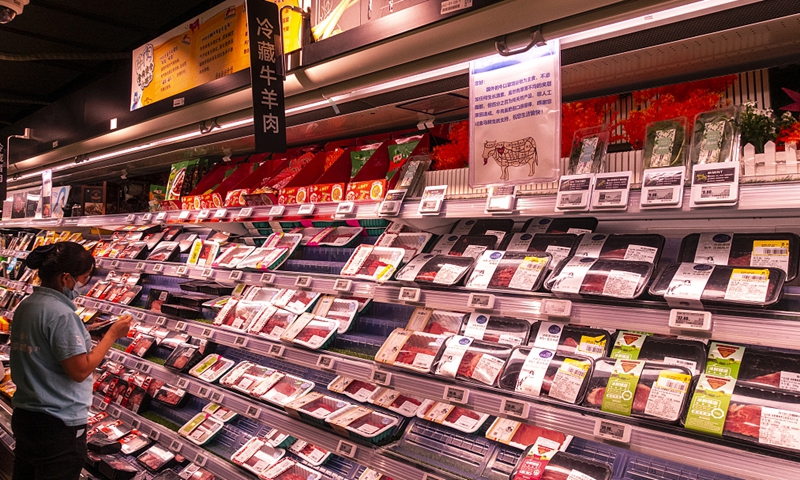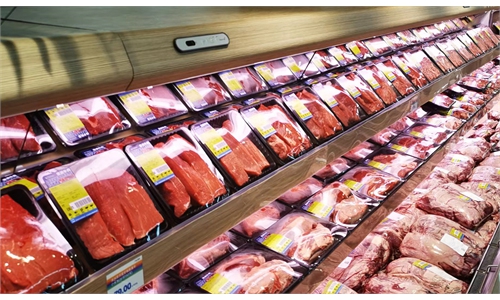China lifts bans on imports of Polish, Belgian beef from cattle under 30 months old

Imported beef is sold in a supermarket in Shanghai. Photo: VCG
China lifted the imports bans on Polish and Belgian beef from cattle less than 30 months old according to relevant rules of the World Organization for Animal Health and risk assessment results, said the General Administration of Customs (GAC) and the Ministry of Agriculture and Rural Affairs (MOA) on Thursday.
The import bans were issued in March 2001 after mad cow disease was detected in those countries. Since then, both countries have introduced laws and regulations on the prevention and control of mad cow disease, and established feed safety and early monitoring mechanisms to track relevant products from farms to consumers, said the GAC.
China sent an experts group to Poland and Belgium to evaluate the mad cow disease prevention and control system, which concluded that the relevant measures had met Chinese quarantine and health requirements. As a result, China lifted the import bans in accordance with its animal and plant quarantine laws as well as international standards.
"Authorities are revising food import bans imposed earlier as diseases that resulted in the food import bans have been eliminated by advanced food safety technology and at the same time to meet the increasing demand from Chinese consumers," an anonymous source close to the matter told the Global Times on Thursday
The GAC and MOA on Thursday also canceled the ban on Italian pork due to vesicular exanthema of swine virus, which was issued in 1999. In February, the agencies canceled the ban on Colombian pork, imposed in 2013 due to classical swine fever and foot and mouth disease virus.
"The lifting of bans on food imports from European countries will mean great opportunities for the local husbandry industry because of China's huge market potential, and will also diversify Chinese consumers' options on their meal table," Cui Hongjian, director of the Department of European Studies at the China Institute of International Studies, told the Global Times on Thursday.
Global Times

